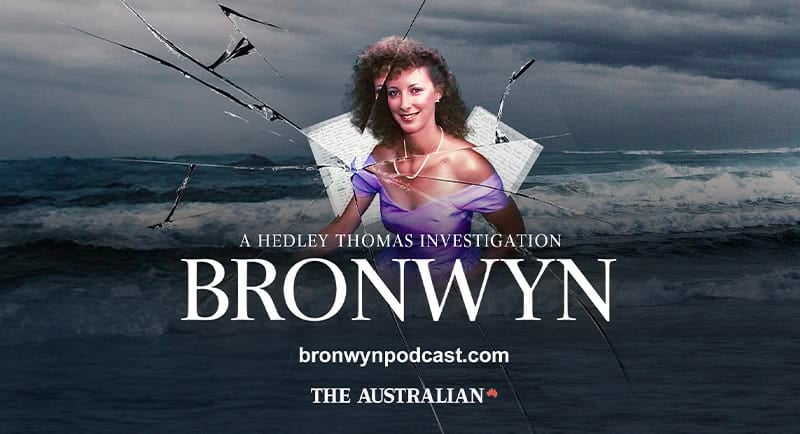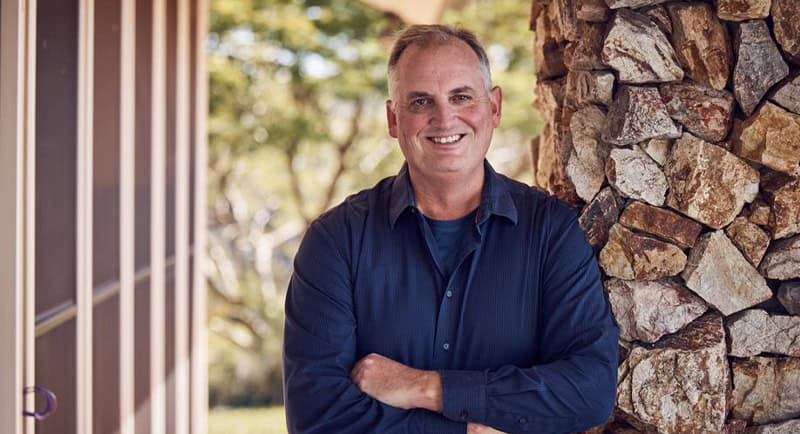“The former police commissioner of New South Wales, Mick Fuller, described a true crime podcast series as the most effective crime-fighting tool he had ever witnessed in all his years of policing,” Hedley Thomas told Mediaweek.
“There’s an impact on listeners who know things, that missing persons posters, police appeal through Crimestoppers, rewards, and so on simply do not and probably will never have.”
With podcasts The Teacher’s Pet, The Night Driver, Shandee’s Story, The Teacher’s Trial, Shandee’s Legacy and The Teacher’s Accuser, Thomas says the biggest thing he has learned through investigative work is that “there will always be new information and new evidence trails in sometimes very old cases.
“Even a very thorough police investigation following a very poor investigation will never be as effective as the mass reach of a podcast series, which prompts people to unburden themselves of information that they have not previously come forward with.”
See also: Chris Dawson, subject of The Teacher’s Pet podcast, found guilty
The origins of Thomas’ new podcast, Bronwyn, can be traced back to December 2017, when Thomas was researching The Teacher’s Pet.
Bronwyn Winfield was a mother of two, who disappeared in 1993 in the midst of separating from her husband Jon. Bronwyn’s family and friends never heard from her again. She was just 31 when she went missing.

Thomas recalls his time conducting interviews for his first podcast, The Teacher’s Pet, which looked into the disappearance of Lynn Dawson in 1982. One person Thomas spoke with was former senior magistrate Carl Milovanovich, who had been the Deputy State Coroner who conducted the inquest for the presumed death of Dawson in 2003.
“He was sharing his concerns about the fact that Lynn’s case, despite his recommendations, had not been prosecuted. As we know now, Carl’s concerns about what happened to Lynn were completely vindicated by the murder trial, which followed the podcast,” Thomas said.
During the interview, Milovanovich spoke about other missing women cases that he had investigated as a coroner, and how in the 80s and 90s, they had been routinely “written off by police as women who just decide to run off with a boyfriend or to start a new life, or join a cult – or whatever ridiculous excuse was given.
“Carl’s view was that they were much, much more likely to be the victims of foul play, homicide, murder. He believed that was the case for Lynn, and he was very concerned about a woman by the name of Bronywn Winfield.”
With the idea of so many women deciding to disappear on a whim and start new lives being “a proposition I’ve always found deeply stupid, and completely ridiculous,” Bronwyn’s story stuck with Thomas beyond conversations with Milovanovich.
“I didn’t have enough material for several years to investigate Bronwyn’s case, but I opened a file and started talking to her friends and family. We interviewed a detective who did a good job of the case years after the police had completely botched it. I decided that when I had a clear four to six months, I would have a really strong push at a podcast investigation into Bronwyn’s disappearance.”
With the first episode of Bronwyn released last month, Thomas said podcast investigations generate “an unusual amount of – sometimes remarkable – information from people who haven’t shared what they know with police.”
“They hear about the case, or a missing woman they once knew, and they decide to get in touch with me through the email address that we publish,” he said.
That email is [email protected], and Thomas said he has already received a lot of information from people – including people who were once very close to Jon and Bronwyn.
“[These are] people who I didn’t believe would get in touch with me. Some people have never been contacted by police. Those are the developments that I’m currently working on, and these mean that there’s a better prospect of potentially solving this case.”
When asked what, exactly, it is that keeps him coming back to investigative podcasts, Thomas said: “I can potentially do more good with this sort of journalism than most, if not all, of the other kinds of storytelling that I might do.”
“I’ve done thousands of stories over 40 years as a journalist, I’ve covered everything from sport, to politics, to big international events. I keep pinching myself at how privileged I am now, to be at the centre of unsolved alleged murders of Australian women, because they are unsolved – their families need answers and communities can benefit from the circle of justice finally closing.”
–
Top image: Hedley Thomas
